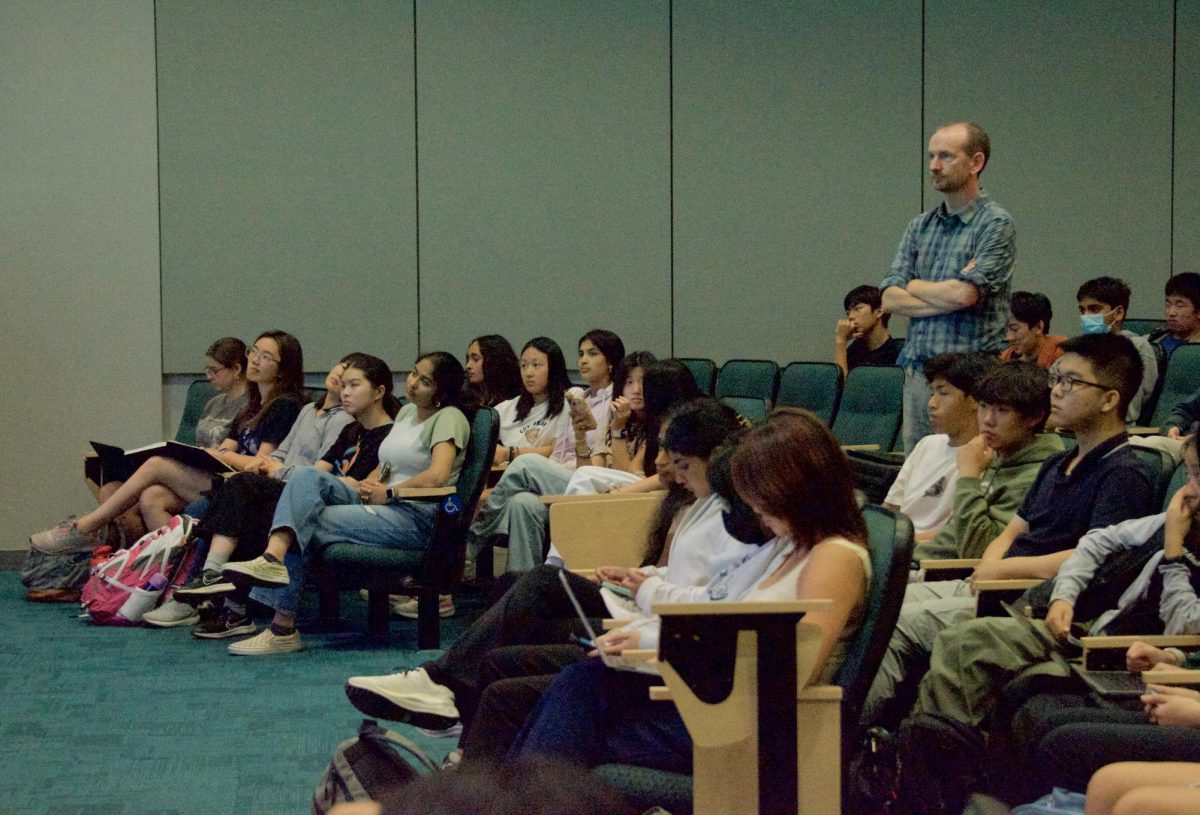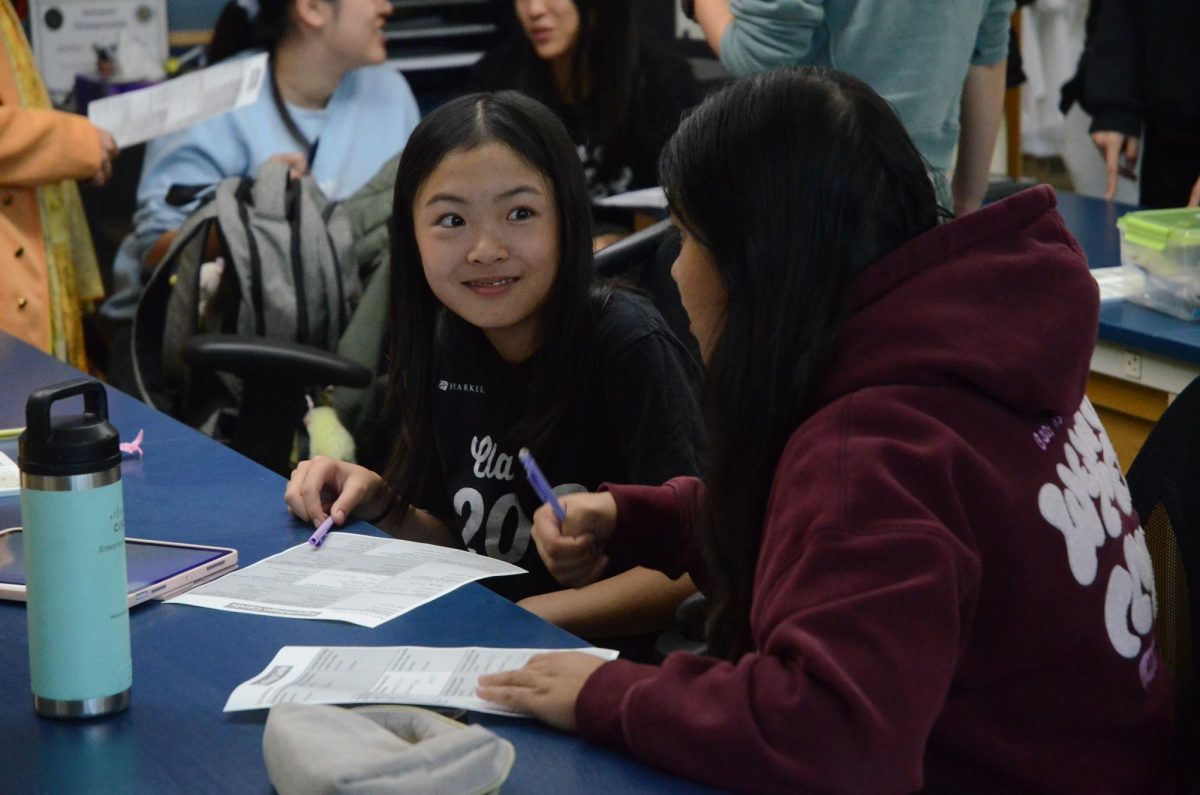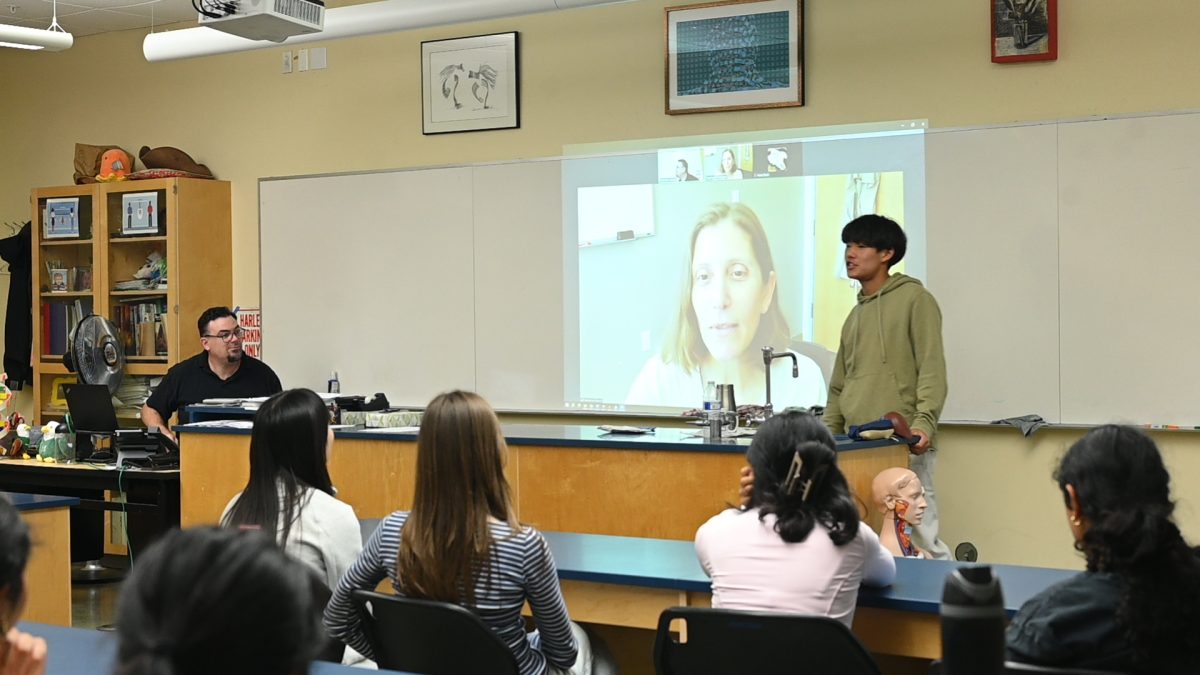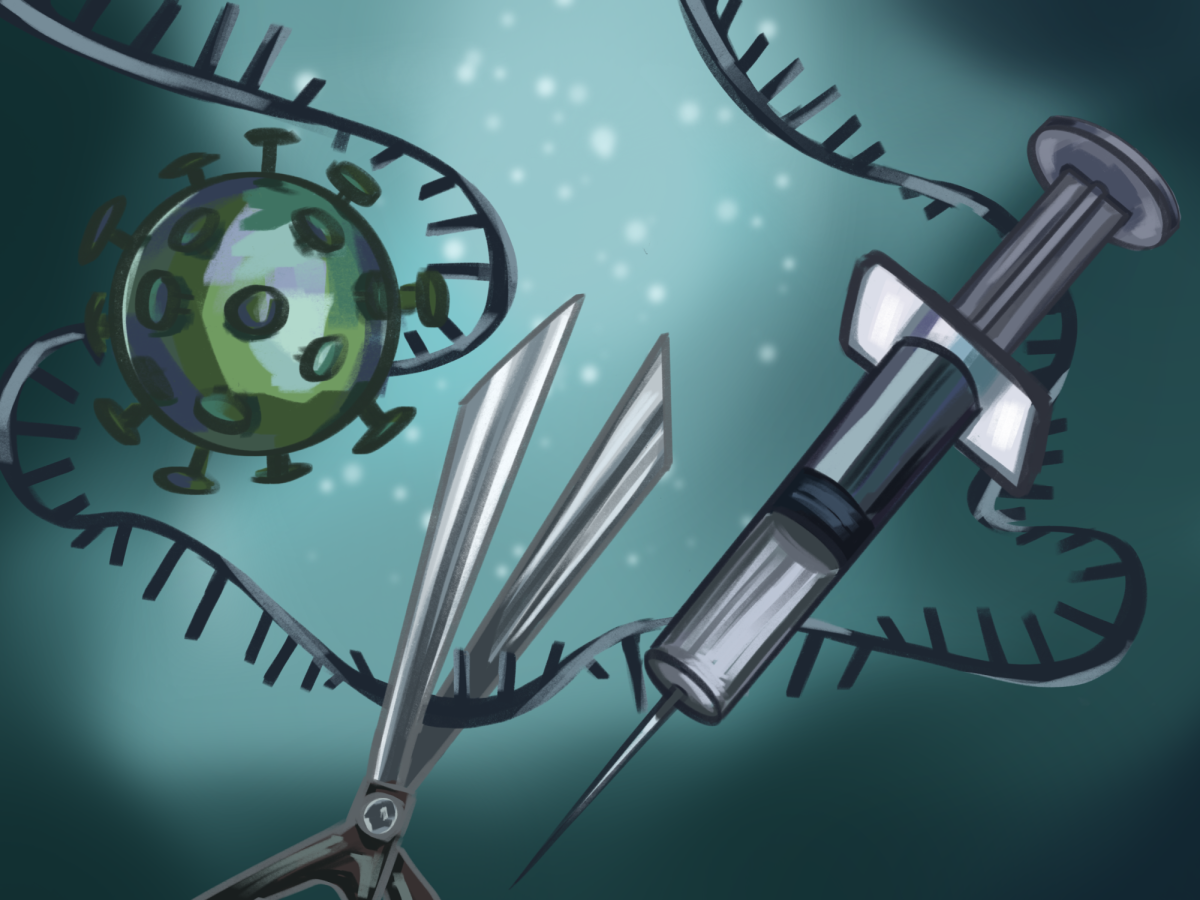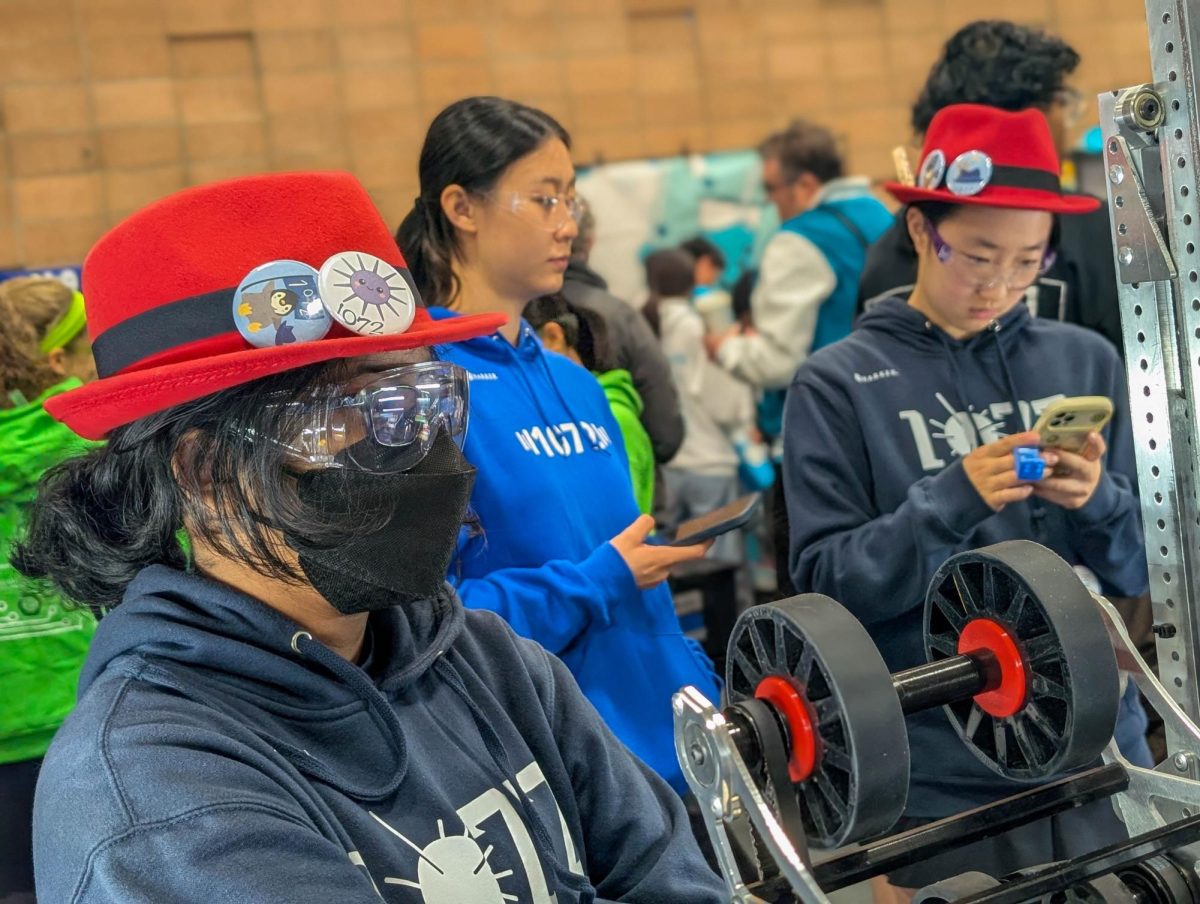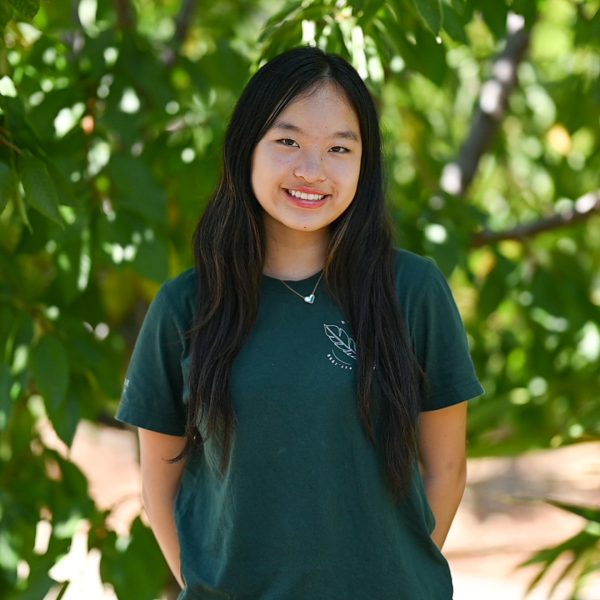Around 100 students attended a meeting to discuss the Synopsys Science Fair application requirements in the Nichols Auditorium last Wednesday. The Synopsys Science Fair is an annual science and engineering competition for middle and high school students in Santa Clara County.
Science department chair Anita Chetty began by discussing Regulated Research Institution (RRI) guidelines for students who have already completed their project at colleges or programs outside of Harker. In the submission, students must submit a logbook with the chronological history of their work and a research plan with citations. Students are required to secure a faculty sponsor to affirm the legitimacy and quality of their research via signature sheet by Sept. 23.
Chetty emphasized the importance of Harker’s science department in guiding students through the research process, referencing an incident in which a winner of the 2024 Regeneron International Science and Engineering Fair (ISEF) came under scrutiny over his project’s scientific integrity.
“This department believes in the research process,” Chetty said in her presentation. “That’s what we’re trying to teach you, and scientific integrity is a very important part of that process. It’s not like we need more competition winners; we’re doing it because we care about the future of you and your scientific endeavors.”
Every year, Harker submits numerous projects to the Synopsys Science Fair, whether through the application process or the Research and Advanced Research electives. Harker sends 15 RRI and 15 non-RRI projects, which can only be submitted by students not taking research classes. Chetty outlined the components, formatting and content requirements of the non-RRI research proposal. Non-RRI students must find a faculty mentor to guide them through their project and submit a research plan by Oct. 15.
Sophomore Anika Basu plans to submit a non-RRI project. She believes that the new guidelines will better ensure scientific integrity.
“The procedures that we have regarding integrity seem complicated,” Anika said. “It is a lot more steps than I thought, but I also think that there’s a good reason for that. With all of these checks in place, it would be very difficult for someone to be dishonest in their research. It’s also nice to have a faculty mentor help you through the process.”
These submissions represent diverse research fields, from artificial intelligence to marine biology. By participating in the Synopsys Science Fair, students present their findings to a public audience and explore topics relevant to today’s society.
“The main purpose is for people to develop a greater appreciation for science,” junior Ishan Mysore said. “We can work really hard to solve a problem that has a wide variety of impacts and be able to contribute to something bigger.”


















![“[Building nerf blasters] became this outlet of creativity for me that hasn't been matched by anything else. The process [of] making a build complete to your desire is such a painstakingly difficult process, but I've had to learn from [the skills needed from] soldering to proper painting. There's so many different options for everything, if you think about it, it exists. The best part is [that] if it doesn't exist, you can build it yourself," Ishaan Parate said.](https://harkeraquila.com/wp-content/uploads/2022/08/DSC_8149-900x604.jpg)




![“When I came into high school, I was ready to be a follower. But DECA was a game changer for me. It helped me overcome my fear of public speaking, and it's played such a major role in who I've become today. To be able to successfully lead a chapter of 150 students, an officer team and be one of the upperclassmen I once really admired is something I'm [really] proud of,” Anvitha Tummala ('21) said.](https://harkeraquila.com/wp-content/uploads/2021/07/Screen-Shot-2021-07-25-at-9.50.05-AM-900x594.png)







![“I think getting up in the morning and having a sense of purpose [is exciting]. I think without a certain amount of drive, life is kind of obsolete and mundane, and I think having that every single day is what makes each day unique and kind of makes life exciting,” Neymika Jain (12) said.](https://harkeraquila.com/wp-content/uploads/2017/06/Screen-Shot-2017-06-03-at-4.54.16-PM.png)








![“My slogan is ‘slow feet, don’t eat, and I’m hungry.’ You need to run fast to get where you are–you aren't going to get those championships if you aren't fast,” Angel Cervantes (12) said. “I want to do well in school on my tests and in track and win championships for my team. I live by that, [and] I can do that anywhere: in the classroom or on the field.”](https://harkeraquila.com/wp-content/uploads/2018/06/DSC5146-900x601.jpg)
![“[Volleyball has] taught me how to fall correctly, and another thing it taught is that you don’t have to be the best at something to be good at it. If you just hit the ball in a smart way, then it still scores points and you’re good at it. You could be a background player and still make a much bigger impact on the team than you would think,” Anya Gert (’20) said.](https://harkeraquila.com/wp-content/uploads/2020/06/AnnaGert_JinTuan_HoHPhotoEdited-600x900.jpeg)

![“I'm not nearly there yet, but [my confidence has] definitely been getting better since I was pretty shy and timid coming into Harker my freshman year. I know that there's a lot of people that are really confident in what they do, and I really admire them. Everyone's so driven and that has really pushed me to kind of try to find my own place in high school and be more confident,” Alyssa Huang (’20) said.](https://harkeraquila.com/wp-content/uploads/2020/06/AlyssaHuang_EmilyChen_HoHPhoto-900x749.jpeg)



